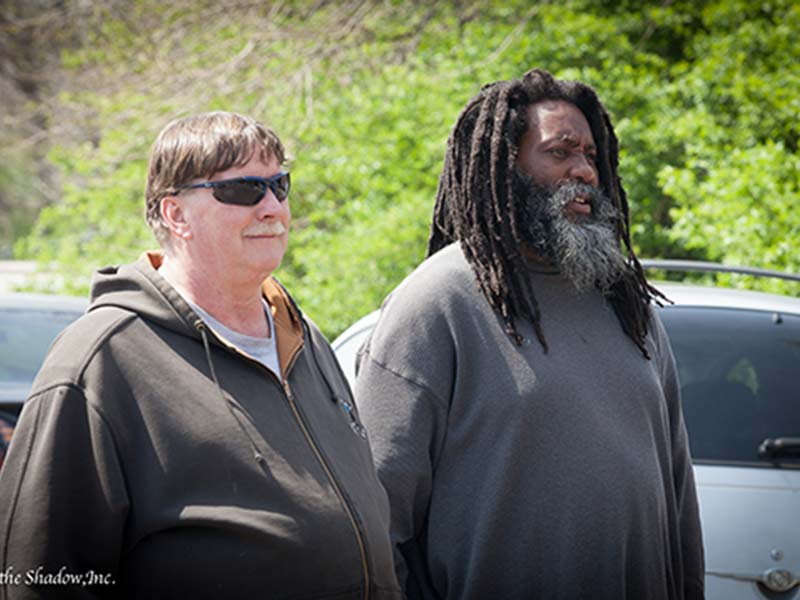
As if being homeless is not hard enough, there is a growing trend in the United States towards criminalizing the state of being homeless, according to the National Coalition for the Homeless. Proponents of this approach believe that punitive measures will deter people from choosing to be homeless. To this end, cities across the country increasingly outlaw activities such as sleeping, eating, sitting, and begging in public spaces, and selectively enforce more neutral laws—such as those prohibiting open containers or loitering—against homeless populations. Violators of such laws typically incur criminal penalties, which result in fines and/or incarceration.
Critics of homeless criminalization claim that such measures do nothing to actually solve homelessness and in fact make matters worse. Homeless people find it harder to secure employment, housing, or federal benefits with a criminal record, and therefore penalizing the act of being homeless makes exiting such a situation much more difficult.
In 2014, the United Nations Human Rights Committee criticized the United States for the criminalization of homelessness, noting that such “cruel, inhuman and degrading treatment” is in violation of international human rights treaty obligations.
Various laws have both directly and indirectly criminalized the homeless and people attempting to feed homeless people outdoors. At least 31 cities have criminalized feeding the homeless. Indianapolis is one of them.
A new documentary shows the reality the homeless face today. “Under the Bridge: The Criminalization of Homelessness” is a documentary film about one summer in Indianapolis, a tent city under a bridge, a man named Maurice, and the criminalization of homelessness in the United States. The unofficial “mayor” of the Davidson St. camp, Maurice is an older, dreadlocked Black man who has dropped out of “normal” society to minister to the homeless. His camp under a railroad track becomes a real community, supported by church volunteers, until police and bulldozers close in to shut it down. Directed by Sam Mirpoorian and Don Sawyer, the trailer is available below:
Click here if you wish to visit the Facebook page available for the documentary.

Comments(5)
Kathy says:
September 18, 2015 at 3:11 amThese are people, human beings made in the image of God. Not garbage that you set by the curb on Fridays. Living, breathing, loving, kind, beautiful people.
Is this “love your neighbor as yourself”? Father, forgive them for they know not what they do.
Graham says:
September 20, 2018 at 7:16 pmThat kind of thing would NEVER happen here in western Oregon, if only because the cities and towns here spend untold tens of thousands of dollars on custom ironmongery to prevent anyone, rich or poor, from sleeping under a bridge. Its not illegal to sleep out-of-doors here, you just get the feeling they really want you to do it in the rain.
John Kay says:
April 13, 2020 at 1:49 amFirst my question. Why do you use the phrase criminalization of homelessness?
I watch the documentary and it was great and covered a lot of topics but the people of the city, government, law enforcement were not really gungho about criminalizing.
I just wonder why you chose that since it was probably the smallest part of the doc. Catchier? Sensationalized? Regardless it makes me feel like everyone involved has an agenda some are up front about it others are more surreptitious. I think we’d all be better off in so many areas right now if people were a bit more honest. I applaud you for bringing multiple view points to this effort but it struck me that every single person and group had at least little bit of dishonesty. The one guy who said oh I just had an owi one offense- well no you also had an assault charge and if a business hires you and you assault someone and they knew about your record or even worse didn’t check you have now opened them to a lawsuit.
I am on the fence on this topic- I live I SF Bay area and I work in tech and in my job I run our financial intelligence and cybercrime investigations. Part of my mind/heart has sympathy but my brain says these people have made choices and we all have to live with these choices. No easy answers but I am truly curious why you tossed that criminalization part in to the topic. Seems like everyone involved is sort of obfuscating an agenda or seeking something from it that is less than forthright.
Lola says:
October 10, 2020 at 5:22 pmCriminalization because they literally arrested those who didn’t want to leave their homes (I call it home because it is where they live, it is where their community is)? They use laws to fine and arrest the homeless (i.e.: loitering, drinking) making it even harder for them to be able to find jobs and restart their lives. These people did not choose to live in the streets, the majority of them have a mental illness, and the simple fact of not having a family to count on can get you in the streets if you are evicted for not paying your rent after you got fired from your Mc Donalds job. There is no empathy in ay part of your heart, sorry to tell you that.
Ken carrol says:
September 9, 2020 at 11:02 pmDid they ever build the darn condo’s?